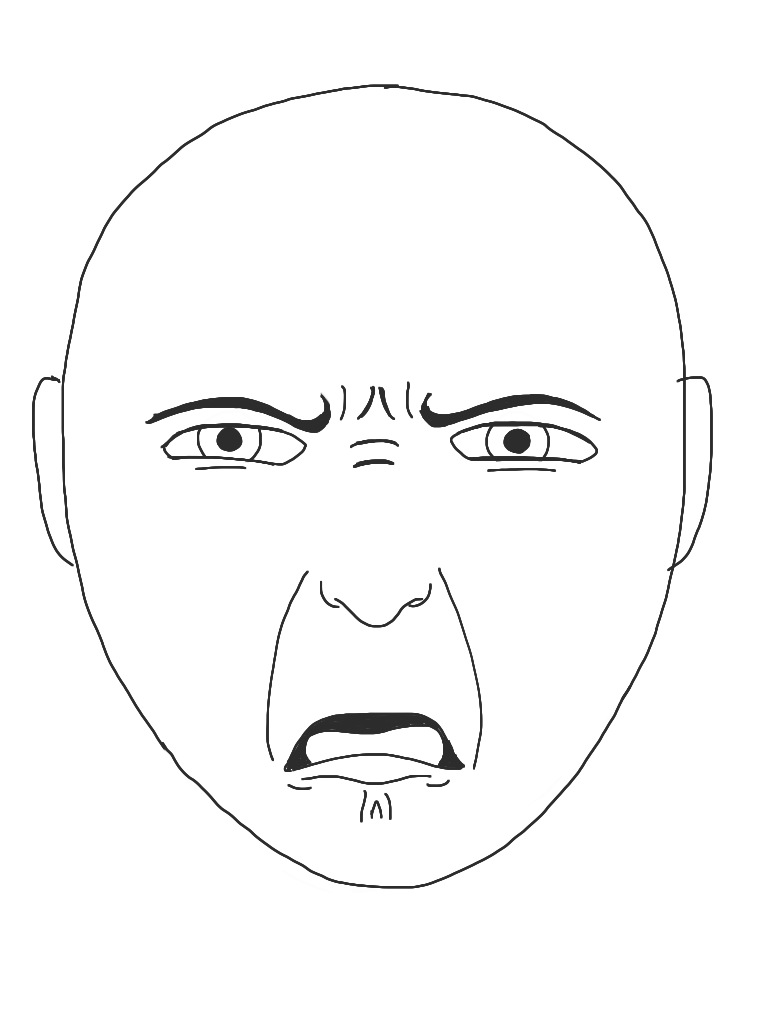Blog
White Noise
Monday, January 23, 2023
So apparently I have pneumonia and a partially collapsed lung. Strange; I don't feel that badly off. This is not merely machismo. I legitimately don't feel much different than I usually do.
The culprit is ALS. At some point during every day, every part of my body hurts, so a stitch in my side doesn't attract attention. Trouble breathing? That's every day too. ALS causes a white noise of chronic illness that masks the symptoms of acute illness.
The same is true of the practice of sin. It's a chronic illness too, of the spirit rather than of the body. It distorts our character and our spiritual perceptions, but its familiarity hides the significance of the change from us. What's more, the malevolent white noise of transgression keeps us from recognizing the danger of new sins when they arise.
Beware, then, of sins that have become comfortable and familiar. We accept them as part of our fallen state. We excuse them because of the shortcomings of others.
This comfort, though, is nothing other than the comfort of pneumonia as we pass imperceptibly from life to death. Sin is an emergency. Your porn habit is an emergency. Your trust in riches is an emergency. The more you embrace these and other sins, the more surely they will destroy you.
Fear them. Hate them. Fling them away from you as you would a viper or scorpion. Now is the time, not tomorrow or the next new year. Unless you act, the white noise of your sin will lull you into continued sleep.
Creation and Resurrection
Monday, January 09, 2023
The primary objection to the resurrection accounts of the Bible is philosophical. It is based on the theory of naturalism. This theory holds that all events have causes rooted in the natural laws of the universe. In the universe, dead people don't naturally come back to life, so Jesus, if dead, could not have risen from the dead. People who think this way are unwilling to consider the evidence for the resurrection because it leads to a conclusion that they think is impossible.
Naturalism is really an assumption. Rather than being based on evidence, it is used to evaluate evidence. As a rule, it leads to dismissing the very accounts that could be used to overturn it.
However, there is one conspicuous exception to the rule. It is the origin of the universe itself. Over the past century, scientists have come to recognize that the universe had a beginning. Before (although that's not really the right word) the Big Bang, neither space nor time existed. After it, the space-time reality did.
In other words, there was something antecedent to the universe through which the universe came into being. Whatever this cause was, it was, by definition, outside of the universe. The universe didn't create itself, after all! That pre-universe event didn't follow the natural laws of space-time reality. It made the natural laws of space-time reality.
Scientists have come up with a variety of speculative, science-like explanations for this. Some say it has to do with string theory and the interaction of strange physical objects called branes. Others posit the existence of a “mother universe” that goes around spawning “daughter universes”. Still others claim that every universe that is mathematically possible does exist, and we are in the good one with the physical constants that allow for life.
All of these explanations have several things in common. There is no evidence for any of them. They are untestable. They are unprovable. None of them correspond with a naturalistic view of the universe because all of them are, strictly speaking, supernatural.
The supernatural does exist. The existence of everything from stars to toenails proves it. If the supernatural made our physical universe, there is no reason to dismiss the possibility that it might intervene in our physical universe too.
If creation, why not resurrection?
Grudges
Monday, January 02, 2023
I hold grudges. It is one of my biggest spiritual failings. I'm not a particularly touchy person, so I don't keep an account of light offenses. However, I do have an excellent memory, and though it is helpful in many other areas, it is not at all helpful here.
When someone betrays my trust, I remember. When someone thwarts my will over something that is important to me, I remember. When someone attacks my character or exalts themselves at my expense, I remember. I remember for a long time.
This is not obvious. When my sister visited for Christmas, she was astonished to learn that I am a grudge-holder. Occasionally, the objects of my grudges find out, when so much resentment accumulates within me that it bursts like a boil (as my poor wife has discovered far too often). Usually not, though.
Nor does my sense of grievance alter my conduct. Even when I resent someone's actions, I still treat them with kindness. I greet them warmly, praise their achievements, and offer them help as I can. I work hard at not rejoicing in their failures, even when those failures are due to their treatment of me. Nonetheless, I continue to remember, with that sense of affronted self-righteousness that is unique to holding a grudge.
This is evil. It is wrong. I know there is considerable debate on this issue. Christians love to go back and forth on whether we must forgive someone if they haven't sought forgiveness. “Do I have to?” They ask. Hint: asking whether we have to carry out a difficult spiritual work is not usually from God.
I think, though, that the debate misses the point. Paul tells us in 1 Corinthians 13 that love does not keep an account of wrongs suffered, which is exactly what grudge-holding is. As always, nothing rubs our noses in our imperfections quite like the commandment to love.
We must love; we must not resent. This is essential for our sakes. I know all too well the toxic effect of resentment. Left unchecked, it can poison an entire life.
At the end of my life, then, I find myself in the final battle against my old enemy. Some of my grievances now have dwindled so much that they no longer move me. In other areas, I am able to acknowledge my role in provoking the bad choices that others made. Whatever its disadvantages, terminal illness does bring the gift of perspective!
Most importantly, though, I am finally able to admit that I am not in control of my own life. We carry grudges because we feel that we have lost control of something that matters to us, whether that be our reputation or even our autonomy.
In reality, life does not consist of those things. People may malign us here, but not even the devil will be able to make an accusation stick against us on the day of judgment. Others may completely take away our autonomy by killing us as they did Christ, but they cannot keep us from being righteous any more than they kept Him from being righteous.
After that, all that is left is offended pride, and the pride of life is fleeting. In this life I experience ever greater humiliation, as many do at the end. In the life to come, even atheists must humble themselves before the Lord.
If you are a member of my grudge-holding tribe, rethink that. It does not help you, it is not good for you, you cannot justify it, and ultimately, it means that you are letting someone else’s carelessness or sin define your life. You are putting resentment where Christ belongs.
I get you (Really! I do!), but it's time to do the hard work of letting go. You will be glad you did, and so will God.
Disgusting
Wednesday, December 07, 2022
I am. I know it. ALS robs its victims of dignity along with everything else. Because I am immobile these days, I have developed the peculiar stench that immobile people have. My sister-in-law, who is an occupational therapist, calls it “stroke stink”.
Bathing me is a trial for Lauren, and it can't be as effective as when I washed myself. I am frequently unshaven, and my hair is often awry. I can't go to the bathroom by myself.
When I eat, I dribble crumbs all over my clothes, my chair, and the floor. Consequently, Boomer loves me even more than he used to. During mealtimes, he sits and watches me like a canine vulture, eagerly anticipating the bounty that he knows will soon be his.
Oh, how my God has brought me low!
Nonetheless, the people around me do not treat me poorly despite ample reason to do so. They turn a blind eye (and nose) to my many disgusting attributes and show me profound kindness and love. Along with numerous other passages that I did not understand until I experienced them, I now understand Galatians 4:13-14. I am humbled by my condition, but I am humbled even more by the grace that others have shown me.
Thank you, all of you.
As always, human goodness is but an echo of divine goodness. We are aware that God hates sin, but we don't think as often about how much it disgusts him. Perhaps this is a symptom of pride in us. Admitting that we are hateful is one thing; acknowledging that we are disgusting is another.
However, many Scriptures testify that God does indeed regard sin with disgust. consider, for instance, Ezekiel 16 and 23. Both chapters are hard to read. They present the spiritual adultery of God's people in the terms of the grossest immorality. The language is shocking, almost pornographic. Many Christians wonder why he would put such a thing in the Bible.
Of course, this appalling language is hardly gratuitous. God wants us to be appalled as we read it. He wants us to be disgusted. He wants us to feel in the pits of our stomachs the way that he feels when he regards our sin.
And yet, the message of the Bible is not a message of disgust. It is a message of grace despite disgust. God loathes our sin, but He surrendered the most valuable thing He had to rescue us in our loathsome condition.
The other day, I was talking to a brother who was so sick about his past sins that he couldn't believe that God would ever value and prize him. He was right about the sins. They are even worse than he imagined.
However, he was wrong about God. We can never be so disgusting that God will cease to love us. We can never be so stained with sin that his mercy cannot purify and renew us. The kindness of others is precious to me, but the kindness of God is infinitely more precious to all of us.
I am. I know it. ALS robs its victims of dignity along with everything else. Because I am immobile these days, I have developed the peculiar stench that immobile people have. My sister-in-law, who is an occupational therapist, calls it “stroke stink”.
Bathing me is a trial for Lauren, and it can't be as effective as when I washed myself. I am frequently unshaven, and my hair is often awry. I can't go to the bathroom by myself.
When I eat, I dribble crumbs all over my clothes, my chair, and the floor. Consequently, Boomer loves me even more than he used to. During mealtimes, he sits and watches me like a canine vulture, eagerly anticipating the bounty that he knows will soon be his.
Oh, how my God has brought me low!
Nonetheless, the people around me do not treat me poorly despite ample reason to do so. They turn a blind eye (and nose) to my many disgusting attributes and show me profound kindness and love. Along with numerous other passages that I did not understand until I experienced them, I now understand Galatians 4:13-14. I am humbled by my condition, but I am humbled even more by the grace that others have shown me.
Thank you, all of you.
As always, human goodness is but an echo of divine goodness. We are aware that God hates sin, but we don't think as often about how much it disgusts him. Perhaps this is a symptom of pride in us. Admitting that we are hateful is one thing; acknowledging that we are disgusting is another.
However, many Scriptures testify that God does indeed regard sin with disgust. consider, for instance, Ezekiel 16 and 23. Both chapters are hard to read. They present the spiritual adultery of God's people in the terms of the grossest immorality. The language is shocking, almost pornographic. Many Christians wonder why he would put such a thing in the Bible.
Of course, this appalling language is hardly gratuitous. God wants us to be appalled as we read it. He wants us to be disgusted. He wants us to feel in the pits of our stomachs the way that he feels when he regards our sin.
And yet, the message of the Bible is not a message of disgust. It is a message of grace despite disgust. God loathes our sin, but He surrendered the most valuable thing He had to rescue us in our loathsome condition.
The other day, I was talking to a brother who was so sick about his past sins that he couldn't believe that God would ever value and prize him. He was right about the sins. They are even worse than he imagined.
However, he was wrong about God. We can never be so disgusting that God will cease to love us. We can never be so stained with sin that his mercy cannot purify and renew us. The kindness of others is precious to me, but the kindness of God is infinitely more precious to all of us.
Being Ruth to One Another
Monday, November 28, 2022
Last Wednesday, I was feeling worn out and run down. Lauren suggested that it wasn't wise for me to go to services, and I reluctantly assented. That left us looking for a livestream to watch. When we saw that Adam Mullinax, one of the members at Jackson Heights, was preaching in their fall focus, we decided to tune into that, and we were not disappointed. Great job, Adam!
I thought that he had many useful things to say, but one of the most intriguing was citing Ruth as an example of being devoted to one another. Although he didn't have much time to spend dwelling on it, it sparked a number of thoughts in my mind.
For one, Ruth’s attachment to Naomi is an especially strong illustration of our attachment to one another because both are by choice. Once Ruth's husband was dead, Naomi was no longer her mother-in-law. If Ruth had chosen her earthly family, she would have gone back to her mother's house.
Instead, Ruth chose to make family out of a woman who wasn't. In earthly terms, this was a foolish choice. All sorts of horrible fates awaited women without protectors. However, Ruth made this commitment out of love, and God rewarded her for it.
The same is true for us. Nobody makes us obey the gospel. Nobody makes us associate ourselves with a particular local congregation. We also form these relationships out of choice, and when love holds us to our commitments, that finds favor with God too.
There also is much to learn from the words of Ruth's pledge to Naomi in Ruth 1:16-17. It has three main elements: a promise to go together, a promise to serve God together, and a promise to stay together.
All of these things are part of our relationship with one another too. We should not take lightly the choice to become a member of a local congregation. Instead, we should be determined to go through life together with our brothers and sisters.
This means sharing our lives with them and allowing them to share their lives with us. It means being open about our joys and our struggles and joining in the joys and struggles of others. Church is not a place where we go for a few hours each week. It is a spiritual family that we have chosen like Ruth chose Naomi.
Because of this family relationship, we serve God together. We are not consumers. We do not belong to a church for what we get out of it.
Instead, we assemble to contribute. We work to contribute. We don't rejoice when we shine; we rejoice when we have served others in the lowliest way possible and helped them to shine.
Finally, church family means that we stay together. There are limits here, of course. Placing membership is not a marriage vow!
However, neither is it a marriage of convenience. We don't stick around as long as everything is going great, only to bail at the first sign of church struggles or relationship challenges.
In Maury County, Tennessee, it's easy to bail. There are dozens of other congregations that would gladly add another family to the rolls. However, the easy choice is often not the best choice, and it isn't the best choice here.
We don't grow when we church-hop at the first whiff of trouble. Instead, we grow through humility, patience, and self-sacrifice as we stick things out with our people. All this sounds uninviting to the worldly, but the child of God will recognize it as the source of enduring joy, both in this life and in the life to come.


